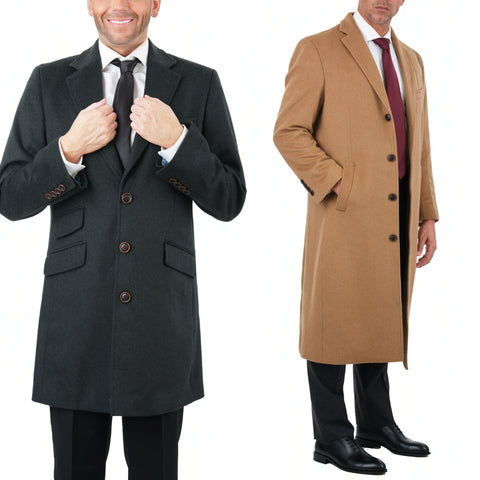Is Polyester a Good Choice for Overcoats?

When it comes to choosing the right fabric for an overcoat, individuals often weigh various factors such as durability, comfort, and style. Polyester, a synthetic fabric, has gained popularity in the fashion industry for its affordability and versatility. However, the question remains: Is polyester a good choice for overcoats?
The Advantages of Polyester
- Affordability
Polyester is known for being a cost-effective alternative to natural fibers like wool or cashmere. For those on a budget, a polyester overcoat can offer a stylish option without breaking the bank. This affordability makes it accessible to a wide range of consumers.
- Durability
One of the standout features of polyester is its durability. It is a strong and resilient fabric that can withstand daily wear and tear, making it an excellent choice for outerwear. Polyester overcoats are less prone to wrinkles and are resistant to shrinking, ensuring a longer lifespan compared to some natural fibers.
- Water Resistance
Polyester is inherently water-resistant, which can be a significant advantage in certain weather conditions. Unlike wool, which may absorb moisture and become heavy, polyester repels water, keeping the wearer dry. This feature is particularly beneficial during unexpected rain showers or snowy weather.
- Low Maintenance
Polyester overcoats are relatively low maintenance. They are easy to care for, typically requiring machine washing and minimal ironing. This convenience is appealing to individuals with a busy lifestyle who may not have the time or inclination for intricate garment care routines.
The Drawbacks of Polyester
- Breathability
While polyester excels in durability and water resistance, it falls short in breathability compared to natural fibers like cotton or wool. This can be a concern for individuals who prioritize comfort, especially in warmer climates. Polyester may trap heat and moisture, leading to discomfort during extended wear.
- Environmental Impact
Polyester is a synthetic material derived from petrochemicals, making it less environmentally friendly than natural fibers. The production process involves energy-intensive methods, and polyester garments are not biodegradable. For eco-conscious consumers, the environmental impact of polyester overcoats may outweigh their other benefits.
- Less Insulation
While polyester provides decent warmth, it may not match the insulating properties of natural fibers like wool. In extremely cold conditions, a polyester overcoat might not offer the same level of warmth and insulation, making it less suitable for harsh winter climates.
Conclusion
In conclusion, the choice of whether polyester is a good option for an overcoat depends on individual preferences and priorities. Its affordability, durability, and water resistance make it a practical choice for many, especially those on a budget or living in milder climates. However, considerations such as breathability, environmental impact, and insulation should also be taken into account when making a decision.
Ultimately, polyester overcoats can be a stylish and functional addition to a wardrobe, but individuals must weigh the pros and cons to determine if it aligns with their specific needs and values. As with any fashion choice, finding the right balance between practicality, comfort, and sustainability is key.

























